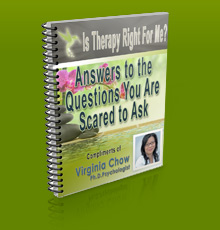
Anxiety can be very challenging to deal with at times, so naturally we search for solutions, tips, tricks and anxiety treatment plans to help us cope with what we are feeling. It is not hard to find suggestions either. The market is filled with books and magazine articles on how to eliminate anxiety in our lives. Likewise, friends, family members and even perfect strangers often have opinions and advice to give on how and why to deal with anxious feelings. It is easy to get caught up in the idea that we have to get rid of our anxieties and avoid developing more that we forget that not all anxiety is bad.
Just as there is good stress and bad stress, anxiety can play a valid role in how we live our lives. A study published in the Journal of Psychological Medicine demonstrated how anxiety can act as a protective factor against accidental death (Lee, Wadsworth, & Hotop, 2006).
Researchers examined the lives of 5 362 people born in 1946 found that those who had been rated as more anxious when they were 13-16 years old had a significantly lower rate of accidental death. Perhaps this is because anxiety may cause a person to examine risks and consider consequences more carefully than less anxious people – essentially making anxiety a protective factor.
Like most things in life, there must be a balance. The same study found that while the presence of some anxiety reduced the risk of accidental death, there was an increase in illness-related death after the age of 25.
So when you are feeling anxious remember that it is not all bad. A little anxiety can help protect you by maintaining a certain level of caution in regards to how you engage in risky behavior. If you are feeling completely overwhelmed and you think that you could use some help in learning how to achieve an appropriate balance, contact your psychologist or therapist for treatment options that are suited to your needs.
Reference: Lee, W.E., Wadsworth, M.E.J. & Hotop, M. (2006). The protective role of trait anxiety: a longitunidal cohort study. Psychological Medicine, 36, 345-351



About the Author:
Dr Chow is a licensed clinical psychologist with a private clinic in Saint-Laurent (Montreal) and in Saint-Lambert on the South Shore. She received her doctorate in Clinical Psychology from Concordia University. She is also a member of the Order of Psychologists of Quebec.